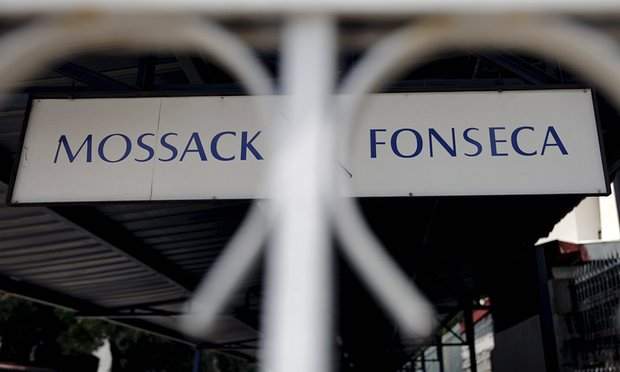
Across Europe, governments and businesses are acting reactively to tax scandals rather than agreeing on pragmatic cross-border solutions, writes León Fernando del Canto.
Everyone has heard of ‘Panama Papers’, but few understand what it really means with regards to international taxation law. Indeed we are witnessing a complex process in which the whole international taxation and regulation structure is being modified by international bodies such as the OECD and the EU.
Beyond the media, ‘Panama Papers’ seemed to have very little immediate effect both traditionally and socially. However, we are now witnessing some movement with clear legal implications. The British Virgin Islands’ Financial Service Commission (FSC) fined Mossack Fonseca (the law firm at the core of the scandal) $440,000 – its largest penalty ever issued.
50 per cent of the 240,000 shell companies Mossack Fonseca represented were established in the British Virgin Islands. Furthermore, up to eight legal breaches were committed by the Panamanian law firm in addition to their cooperation with money laundering activities in other jurisdictions.
Following a six month investigation at Mossack Fonseca’s local offices, the BVI Financial Services Commission found that the law firm failed to exercise the due management and compliance control to prevent money laundering. In addition, they did not carry out the expected due diligence to avoid exposing their clients’ assets and business transactions to unwanted risk.
The fine is in reality relatively low, especially given its high-profile nature and the magnitude of the firm’s operation and the financial scale of the companies under management. This fine seems to put an end to the odyssey of Mossack Fonseca in BVI. Following this, business will continue as usual, maintaining its operating license at the Virgin Islands.
Experts have recently asked the British government to extend its tax investigations to the Overseas Territories and Crown Dependencies as a way to enforce a firm’s tax avoidance control to prevent situations like the BVI’s fine, which in reality, does very little to improve the situation.
It is not to say that the British government is not taking measures to tackle this international tax problem. In fact, they created the Panama Papers Taskforce, a cross-agency unit created to investigate the ‘Panama Leaks’. As a result, 22 people, directly related to this scandal, have now been subject to civil and criminal reviews and 43 wealthy individuals are now under investigation.
On top of that there are eight Serious Fraud Office inquiries jointly conducted by the Financial Conduct Authority (FCA) and the National Crime Agency (NCA) in which 26 offshore companies were identified and another 64 were pursued.
But the UK is not the only place where actions against international tax avoidance are being taken following Panama Papers. Australia is taking action against more than 1,000 potential evaders. Venezuela will judge the Mossack Fonseca’s representative in the country and France is conducting up to 560 tax inspections against French companies related to the ‘Panama Papers’.
International organizations like the OECD (with its Base Erosion and Project Shifting) and the European Union, are actively involved in initiatives that tackle tax fraud too. The Commission’s inquiry into the European Parliament recently released a report where up to twelve recommendations against international tax fraud were listed.
There is work being done but unfortunately there is still much more to do. We are of the opinion that the principles of universal jurisdiction must be adopted internationally in order to tackle international tax evasion and crime in general and believe there are four issues that need to be solved before properly (and successfully) ending with international tax avoidance.
Firstly, there is a lack of interest in the international community about the universal jurisdiction principles. If the principles were applied to international tax avoidance, affected states would be able to prosecute evaders worldwide as the other countries will immediately accept its jurisdiction.
The second problem, firmly linked to the first issue, is that states do not internationally agree on what ‘tax avoidance’ means, and this implies that under International Public Law if there is not a clear and agreed legal definition of the crime, international prosecution and especially police investigations cannot proceed effectively and efficiently. The lack of a legal agreement creates a limbo, which in reality becomes a virtual ‘tax haven’ for evaders.
The third problem it has to do with is international tax law. Lawyers and auditors are generally well-regulated and recognised professionals and they abide by certain ethical principles and rules which are internationally accepted. There is still work to be done in standardising these rules to be universally recognised. But tax advisers, who are very loosely regulated internationally (except in the UK), have different criteria for admission, CPDs and ethics. Therefore, a universal code of ethics and professional standards should be agreed to regulate the international tax advisory profession worldwide.
The final point that needs addressing is the necessity to regulate the independence of media outlets and investigative journalism. Sometimes it seems that breaking news and media coverage serve other interests and they are broadcasted with a pure sensationalist approach. Looking at ‘Panama Papers’ for instance, it is quite clear that the public interest was closely linked to the celebrities involved and the substance was irrelevant. In fact most of the leaked documents were outdated and irrelevant from the perspective of criminal prosecution.
There is lot of work to be done and the contribution of states and interstate organisations is still key to be really successful in fighting tax evasion.
León Fernando del Canto is a barrister and abogado at Del Canto Chambers







